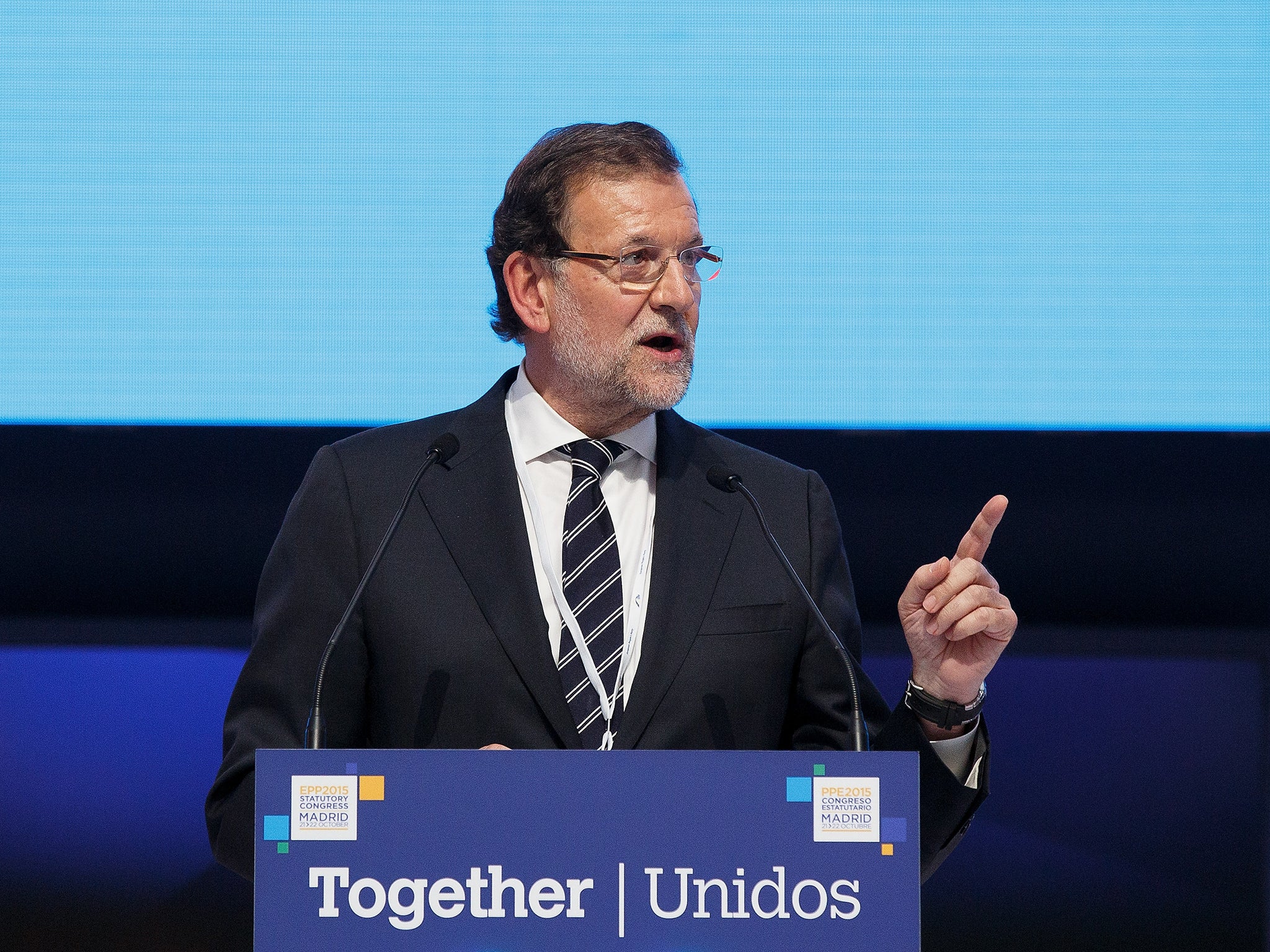Spain's socialists say they want to form an anti-austerity coalition with leftist parties
The issue of a referendum on Catalonian independence could be a sticking point, however

Your support helps us to tell the story
From reproductive rights to climate change to Big Tech, The Independent is on the ground when the story is developing. Whether it's investigating the financials of Elon Musk's pro-Trump PAC or producing our latest documentary, 'The A Word', which shines a light on the American women fighting for reproductive rights, we know how important it is to parse out the facts from the messaging.
At such a critical moment in US history, we need reporters on the ground. Your donation allows us to keep sending journalists to speak to both sides of the story.
The Independent is trusted by Americans across the entire political spectrum. And unlike many other quality news outlets, we choose not to lock Americans out of our reporting and analysis with paywalls. We believe quality journalism should be available to everyone, paid for by those who can afford it.
Your support makes all the difference.Spain’s main centre-left party has said it wants to form an anti-austerity “progressive” coalition government with the country’s other leftist parties.
The Spanish Socialist Workers Party (PSOE) has been locked in negotiations along with Spain’s parties after the country’s general election last month did not give any one party a clear majority.
Leader Pedro Sánchez said on Thuresday that he wanted a government “like the one in Portugal” at a press conference after a meeting with that country’s prime minister.
In Portugal the centre-left Socialist Party has taken power with the parliamentary support of the Left Bloc, Portuguese Communist Party, and greens.
There, the government has started undoing the privatisation programme of its predecessors and has said it will plot a new course on fiscal policy.
In Spain, PSOE came second after the centre-right Popular Party (PP). In order to gain a narrow majority in parliament POSE would require the support of insurgent leftists Podemos and at least some assorted Catalonian and Basque regionalist parties – not all of whom are left-wing.
Both Podemos and the nationalist parties want a referendum on independence for Catalonia – which PSOE is dead-set against.
“The EU needs a new direction,” Mr Sanchez said, according to a translation by The Spain Report website.
“With progressive government like the one in Portugal we will fight against precarity and poverty.
"We share the road map and social agenda of the Portuguese socialist government”.

The PP, led by prime minister Mariano Rajoy, has been attempting to form a government but appears to lack the numbers to form a majority.
Their most likely coalition partner, the populist liberal right-wing Ciudadanos, underperformed expectations. PSOE has ruled out a so-called “grand coalition” with the PP.
The Spanish general election was dominated by discussions of constitutional reform, including the level of autonomy Spain’s regions should have.
It was also the worst result since the restoration of democracy for the two main parties, the PP and PSOE.
Join our commenting forum
Join thought-provoking conversations, follow other Independent readers and see their replies
Comments